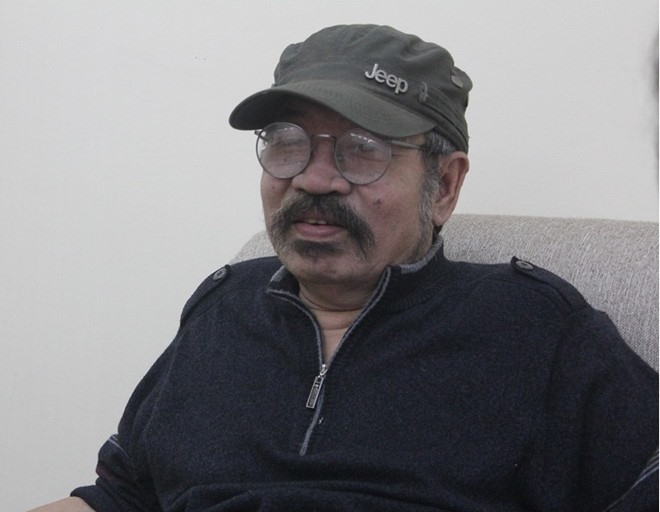 Life & Style
Life & Style

Chí Phèo, Thị Nở, a play by director Lê Hùng, received positive feedback from audiences and professionals after the first performance on January 6 at Hồng Hà Theatre.
 |
| Director Lê Hùng |
Chí Phèo, Thị Nở, a play by director Lê Hùng, received positive feedback from audiences and professionals after the first performance on January 6 at Hồng Hà Theatre. The play was adapted from Chí Phèo, one of the most popular literary works by Nam Cao (1917-51). The work is a tragedy about a Vietnamese peasant before the August 1945 Revolution. The play will attend the 4th Hà Nội International Experimental Theatre Festival this year. The Vietnam New Agency’s Thể Thao Văn Hóa (Culture & Sport) daily interviewed Hùng about his new work
You chose to stage an adaptation of a popular literary work. Is it true that the stage is lacking good scripts?
Yes, the stage today does not have many good scripts. The number of interesting and good scripts is even rarer. However, that was not the main reason we decided to bring Chí Phèo to the stage again.
To remake and refresh popular works which are very familiar to entice audiences is always a challenge and an interesting experience. In the world, there are plays that were written many centuries ago but people are not afraid to remake because they touch the common denominator of humanity. One of the ways to measures an artist’s talent and creativity is against past success.
Moreover, the story that writer Nam Cao told in Chí Phèo is still not old. It has a connection with many topical issues of the present time, especially stories of decadence and moral pollution.
Chí Phèo’s story is a tragedy of person whose human rights are deprived.
In my opinion, the key factor when staging a play with the script adapted from a classic literary work is to grasp the thought of the work, to revive the topicality. The challenge is to preserve the original and bring it close to contemporary life.
You once stages a play for Thái Bình Troupe that also used Chí Phèo. Are you afraid to repeat yourself?
If I was afraid, I wouldn’t do it. With the previous staging, I just illustrated the character of Chí Phèo on stage. This time, I want to give the story a new life. But that does not mean I will create a Chí Phèo character different from the original.
Today, if there is no stage, the audience will not feel frustrated because they already have cinema, television and other entertainment services. Therefore, to get them out of the house, the most sustainable way is to win their hearts with performing arts.
I believe if the work is good the audience will not turn away. The stage has to change itself first and reinvent itself then hope to attract audiences.
Take for example, plays like Anton Chekhov’s Uncle Vanya and Bertolt Brecht’s The Caucasian Chalk Circle that are ideological and not lighthearted, but the audience is still full. The plays are very good.
So what is different between the two versions?
Drama is a type of art imported from the west into Việt Nam. This time, I set up the play in the Vietnamese folk style, using the performances, elements and expressions of different types of Vietnamese folk theatre.
Also, I will not tell the story in chronological order. Right from the opening, the audience will see and know how clearly Chí Phèo was born and the process of Chí Phèo coming to life.
The original name of the literature work was Chí Phèo and here, the play is Chí Phèo, Thị Nở. What is the reason for this change?
At first, the playwright Lê Chí Trung named the script Love and Drunk. However, we decided the name was not specific and we decided to change it with the intention of highlighting the role of Thị Nở in Chí Phèo’s life, focusing on humanity and the love story between two the characters.
The play has a scene with a group of foreigners visiting writer Nam Cao’s homeland. What message do you want to convey?
During the staging process, I respect the original but still I have creativity with a view to reaching the audience. When staging the scene of a group of foreigners visiting Nam Cao’s homeland and listening to a description of the writer’s career and his contributions to Vietnamese literature, I had very clear intention. I want to send a message to those who work in the tourism field.
When international tourists come to Việt Nam, if we only introduce them to scenic spots, food and traditional festivals it is not enough. Promoting culture needs to be associated with portraits of known figures such as writers and artists.
Moreover, the play will be part of the 4th Hà Nội International Experimental Theatre Festival this year so we want to highlight Vietnamese cultural identity. I want to modernise tradition and return to folk theatre to find materials for my creativity. — VNS




